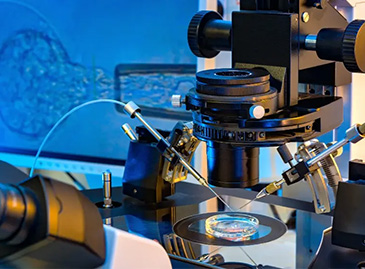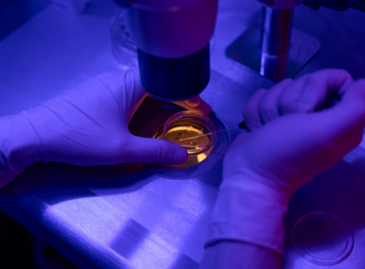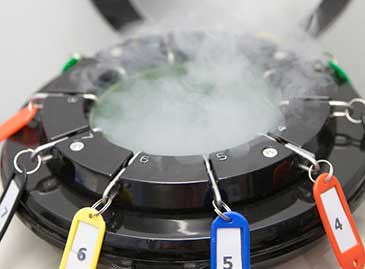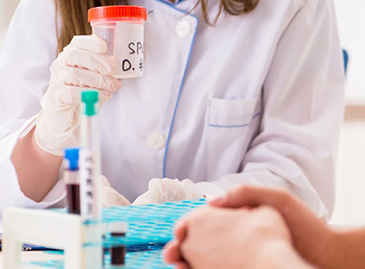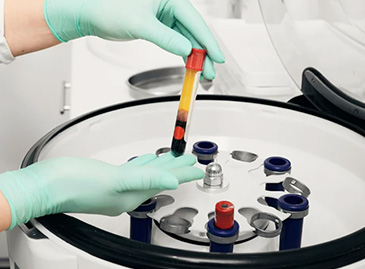In Vitro Fertilization (IVF) in Turkey
Nowadays, IVF treatment is working miracles for fertility problems. We find experienced and extensively trained doctors who are happy to help you expand your family and future. If you and your partner struggle to have a baby, you can welcome a cute family member into the world via IVF treatment.
We are with you throughout the entire process
You will find some useful information that will help you prepare the necessary organization to prevent all problems and make the necessary arrangements to ensure that everything goes smoothly during your stay in Turkey.
After our with doctor answers all your questions, doctor will explain to you how the operation process will proceed.
You will have a preliminary meeting with the doctor and team we work with before the operation.
Read the document we sent you before coming to Istanbul and be sure to follow the rules.
During the recovery process, our teams will call you, ask about your condition and ask for photos.
FAQ for In Vitro Fertilization (IVF)
You can find detailed information about the operation and organization you will have before coming to Turkey. You can contact your sales representative for any other questions you may have.
- After the embryo transfer in IVF, it typically takes about 1-2 weeks to confirm pregnancy through a blood test for the presence of beta-hCG hormone (pregnancy hormone).
- IVF (In Vitro Fertilization) involves stimulating a woman's ovaries to produce multiple eggs, retrieving those eggs, fertilizing them with sperm in a laboratory dish, and then transferring the resulting embryos into the uterus to establish a pregnancy.
- The hardest step of IVF can vary for individuals, but many find the emotional and physical toll of the stimulation phase (injecting hormones to produce multiple eggs), the waiting period to see if the embryos develop successfully, and dealing with potential failed cycles to be particularly challenging.
- The five main stages of IVF are: - Ovarian Stimulation - Egg Retrieval - Fertilization - Embryo Culture - Embryo Transfer
- IVF may not work for several reasons, including poor embryo quality, implantation failure, underlying health issues, or unexplained factors. When IVF doesn't result in pregnancy, doctors may suggest further diagnostic tests or alternative fertility treatments.
Latest posts & articles
Authorized by the Ministry of Health and Tourism in Turkey
Moreover, treatment methods get more advanced every day. Thus, IVF treatment success rates are increasing, and you can overcome the problems that cause infertility. These problems may be low sperm count, poor egg quality, or genetic diseases.
However, it would be best if you tried less invasive before starting an IVF cycle in a hurry. Such as fertility drugs that increase egg production. Also, it would be best to consider that IVF is a complicated chain of procedures. So, it does not hurt to explore more straightforward methods.
With Istanbul Med Assist, starting a family is no longer just a dream. Affordable IVF treatment is now within reach for those who seek it.
Understanding IVF
During IVF, your doctor retrieves your eggs from the ovaries and fertilises them with sperm in a laboratory. Thus, fertilised eggs turn into embryos. Then, they will return to your womb to grow and develop. A gynaecologist can carry out IVF using your eggs and your partner’s sperm. Also, they can perform the treatment with eggs and sperm from a donor. Additionally, experts can help you freeze the eggs and preserve your fertility for the future. For this, they harvest your eggs from the ovaries and freeze them without fertilising. Then, when you decide to have a baby, they thaw them and combine them with sperm in the lab. Lastly, they implant the eggs in your uterus. Be sure to consult your doctor about how egg freezing works and if it works for you.
As Istanbul Med Assist, we provide;
- Medical examination of the couple for the cause or causes of infertility
- Screening both partners for diseases
- Creating an IVF treatment plan tailored just for you
- Retrieve your eggs
- Sperm retrieval
- Combining sperm with eggs in the lab
- Transferring the embryos back to your uterus
- Test for pregnancy after two weeks
- Egg freezing
Currently, IVF is the most effective assisted reproductive treatment in the world. Keep in mind that a successful pregnancy depends on many factors. Doctors and staff are happy to help you and your partner have a healthy baby.
What is IVF?
In vitro fertilization (IVF) is a complicated chain of procedures to help with fertility problems and the conception of a baby. Also, it helps to prevent genetic issues that may occur in the future. During IVF, a gynecologist doctor will retrieve mature eggs from your ovaries and fertilize them with sperm in a lab. Then, the process continues as your doctor transfers the fertilized egg (embryo) or eggs (embryos) to your uterus. Usually, one complete cycle of IVF takes about three weeks. However, your doctor may split the stages into different parts, and the treatment may take longer.
IVF is currently the most effective assisted reproductive technology in the world. Doctors perform IVF by using a couple’s eggs and sperm. Also, they may use eggs, sperm, or embryos from a known or anonymous donor. IVF’s success depends on many factors, such as age and the reason for infertility. Of course, your doctor will help you understand IVF, the potential risks, and whether IVF is right for you.
Why is IVF done?
IVF can treat infertility and genetic problems. However, it would be best if you considered less-invasive options before having an IVF for infertility. For example, fertility drugs that increase the production of eggs or intrauterine insemination. Doctors may offer IVF as a primary treatment for infertility in women over 40.
Also, certain health conditions make IVF a necessity to have a baby.
Fallopian Tube Damage or Blockage:
This condition makes fertilization difficult or prevents the embryo from traveling to your uterus.
Ovulation Disorders:
If you ovulate rarely or not at all, there are fewer eggs for fertilization.
Endometriosis:
It occurs if tissue similar to the lining of the uterus implants and grows outside. This condition often affects the function of the ovaries, uterus, and fallopian tubes.
Uterine Fibroids:
It is common in women in their 30s and 40s. Fibroids are benign tumors in the uterus but can disrupt the fertilized egg implantation.
Previous Tubal Sterilization or Removal:
Doctors can cut or block your fallopian tubes to permanently prevent pregnancy. IVF may be an excellent alternative to reversal surgery if you want to have a baby after this procedure.
Low Sperm Production or Function:
Certain conditions may make it difficult for sperm to fertilize an egg. If the sperms have poor concentration, mobility, or abnormalities in size and shape, fertilization may be difficult.
Unexplained Infertility:
Sometimes, doctors may not find the reason for infertility, although they perform evaluations for common causes.
A Genetic Disorder: If one of the partners is at risk of passing on a genetic disorder to the child, they may be candidates for IVF.
Fertility Solution for Cancer or Other Health Problems:
Fertility Solution for Cancer or Other Health Problems: Cancer treatment, such as radiation therapy or chemotherapy, can harm fertility. In this case, IVF becomes a viable option.
How you prepare for IVF
IVF Tests and Exams
Before starting a cycle of IVF with your eggs and sperm, you and your partner need various tests.
Ovarian Reserve Testing
Your doctor determines the quality and quantity of your eggs by testing the concentration of the hormones in your blood during the menstrual cycle. Test results and an ultrasound of your ovaries can help the doctor to predict how your ovaries will react to fertility medication.
Semen Analysis
Doctors conduct a semen analysis as a part of a fertility evaluation. Sometimes, they perform this test just before starting an IVF treatment cycle.
Infectious Disease Screening
Your doctor screens you and your partner for infectious diseases such as HIV.
Practice (mock) Embryo Transfer
This test aims to determine the depth of your uterine cavity and the technique to place the embryos successfully.
Uterine Exam
It has been recommended that an assessment of the uterine cavity be included as a standard procedure in evaluating women experiencing subfertility. Hysteroscopy is currently considered the most reliable method for evaluating the uterus.
Important Questions to Consider
There are some critical questions to consider before starting an IVF cycle.
How many embryos?
Your doctor decides the number of embryos to transfer based on your age and the number of eggs. More likely, you will need more embryos if you are older. The rate of successful implantation lowers in later stages. However, most doctors follow specific guidelines to prevent multiple pregnancies. It would be best to talk to your doctor about the number of embryos before the transfer procedure.
What will you do with extra embryos?
Your doctor can freeze and store the extra embryos for several years. Also, most embryos survive the freezing and thawing process. If you have frozen embryos, a future attempt at IVF may be less expensive or invasive. Or, you can donate them to a couple or a research facility. You can also choose to discard them.
Multiple pregnancies?
IVF may result in multiple pregnancies if more than one embryo enters a uterus. This condition may be risky for you and your babies. Sometimes, doctors perform fetal reduction to help deliver fewer babies with lower health risks. However, fetal reduction is a very invasive procedure. It is a significant decision with ethical and emotional consequences.
Steps in IVF procedure
IVF procedure has several steps, and one cycle may take 2 to 3 weeks. Also, you may need more than one cycle.
Ovulation Induction
Your doctor starts the cycle by stimulating your ovaries with synthetic hormones to produce multiple eggs. Usually, you have a single egg that develops each month. You need numerous eggs because some of them will not develop after fertilization. Your doctor may use several different medications: Medications for ovarian stimulation. Stimulation of your ovaries by injecting a drug that contains hormones. As a result, medication stimulates more than one egg at a time—a prescription for oocyte maturation. When your eggs are ready (after 8 to 14 days), this medication helps the eggs mature. Medication to prevent premature ovulation. It prevents your body from releasing eggs too soon—medications to prepare the lining of your uterus. Your doctor may recommend they make the lining of your uterus more receptive to IVF. Your gynecologist decides the type and timeline of medications. You need one or two weeks of stimulation before your eggs are ready. Also, your doctor may order blood tests or perform a vaginal ultrasound to determine if the eggs are ready to collect.
Egg Retrieval
Your doctor retrieves your eggs 34 to 36 hours after the final injection and before ovulation. Firstly, you take sedation and pain medication for the procedure. Then, your doctor uses transvaginal ultrasound to retrieve the eggs. For this, your gynecologist inserts an ultrasound probe into the vagina and takes the eggs with a thin needle. They can remove multiple eggs in 20 minutes. You may experience cramps or pressure after the procedure. After retrieving the eggs, your doctor places them in a nutritious liquid. Finally, the mixing process with sperm begins to create embryos.
Sperm Retrieval
You will need a semen sample on the morning of the egg retrieval. Masturbation is the standard way to collect semen. However, there are other methods, such as testicular aspiration. Or, you can use donor sperm as well. Then, your doctor separates sperm from its fluid in the lab.
Fertilization
There are two methods of fertilization.
- Conventional Insemination:
During this procedure, your doctor mixes and incubates healthy sperm and mature eggs overnight.
- ICSI:
In ICSI, your doctor injects a single healthy sperm into each egg. ICSI is useful when semen quality and quantity are insufficient or if fertilization fails in prior IVF cycles.
Embryo Transfer
Your doctor performs embryo transfers 2 to 5 days after egg retrieval. You take a mild sedative. Also, this procedure is primarily painless, but you might experience mild cramping. Then, your doctor reaches the uterus through the cervix with the help of a catheter. Lastly, places the embryos into your uterus with a syringe attached to the catheter. An embryo implants in the lining of your uterus 6 to 10 days after egg retrieval.
After the IVF
You can resume your regular life but you should avoid vigorous activities because your ovaries will be enlarged.
Possible side effects:
- A small passing of clear or bloody fluid shortly after the procedure
- Breast tenderness
- Mild bloating
- Mild cramping
- Constipation
If you begin to feel moderate or severe pain, contact your doctor.
Results
After 12 days to two weeks, your doctor orders a pregnancy test.
If the result is;
- Positive, your doctor refers you to a pregnancy specialist.
- Negative, you stop taking progesterone and get your period within a week. Contact your gynecologist if you don’t get your period or see unusual bleeding. If you want to try another cycle of IVF, your doctor can help you to take steps to improve your chances of having a baby through IVF.
Are IVF babies healthy?
Generally, IVF babies are as healthy as naturally conceived babies. However, there might be a slightly higher risk of certain complications such as preterm birth or low birth weight. But overall, IVF has been shown to produce healthy babies.
